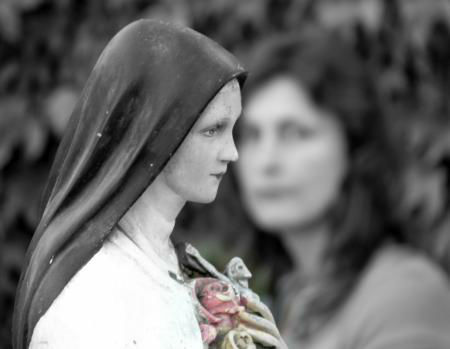Dying Is Terrifying, Which Is Why We Need Courage
Before 29-year-old Brittany Maynard took her own life Nov. 1, choosing to avoid the pain and suffering caused by an aggressive and large brain tumor, she left the world with a clear message--don't be afraid of assisted suicide.
In the weeks leading up to her own suicide, Brittany advocated for giving others the choice to "die with dignity," and she called for a movement to "get people educated about this topic, to have discussions based on facts not fear."
As the news spread that Brittany had taken a prescribed amount of drugs that caused her death, advocates of euthanasia took to social networks to praise her courage. Canadian Senator Linda Frum wrote: "RIP brave beautiful soul. Brittany Maynard Has Ended Her Own Life."
In a certain sense, Frum is correct. From what we learned about Brittany through her videos and media tour, she appeared to be an intelligent, loving and generous person who was uniquely focused on living, and taking in all the beautiful things life has to offer.
What we also saw, however, was a young woman who was deeply fearful of those things we all fear. She feared suffering, losing control, and the humiliation of dying.
After Brittany was diagnosed with an incurable progressive brain tumor called glioblastoma multiforme, she moved from her home in California to Oregon, where assisted suicide is legal, so that she could, in her words, "die on my own terms."
"I've discussed with many experts how I would die from it and it's a terrible, terrible way to die. So being able to choose to go with dignity is less terrifying," she admitted.
It's true. Dying is terrible, and it's terrifying. Even great saints have admitted as much.
St. Thérèse of Lisieux, who suffered an excruciating agony that lasted months, said on her death bed: "I am afraid I have feared death." She quickly followed this admission with: "It is the first time that I have experienced this, but I abandoned myself immediately to God."
"Do not be troubled," she said later to the Carmelite sisters at her side, "if I suffer very much, and if you see in me ... no sign of joy at the moment of death."
Just before she died, Sister Thérèse asked her prioress, "Mother! Isn't this the agony? Am I not going to die?" Her superior responded that yes, she was dying, but that she could still continue to suffer for many hours. "Well, all right," Sister Thérèse responded, "I would not want to suffer a shorter length of time."
Brittany, on the other hand, chose the way of less suffering and less pain. And to her credit, her actions were coherent with the values of our culture, a culture that teaches us to avoid what we fear, all in the name of freedom and control.
In reflecting on her disease, Brittany said the worst thing that could happen to her is that she would wait too long to kill herself, and that she would lose control. Being able to choose her time of death was, to her, the ultimate freedom.
In Brittany, we see a good person. In her last words she encouraged us to "spread good energy" and to "pay it forward." These aren't bad messages, however vague they might be.
What we don't see, however, is the courage and bravery of a soul that has faith.
"What would become of me if God did not give me courage," Sister Thérèse asked as tuberculosis violently attacked her body, causing her great pain with each and every breath. "If I had no faith, I would have inflicted death on myself without hesitating a moment!"
In her last moments, Sister Thérèse gazed intently on a crucifix and said, "My God, I love you." She died as she had lived, loving God, and believing in him, with a faith that grew stronger with each moment of pain and suffering, knowing that death was not to have the last word.
Brittany might be a role model for the right-to-die movement, a product of a culture that lives as if God does not exist, and that is characterized by its fear of what it cannot control, but as Christians we are meant to fly to greater heights, and to be role models for others on how to live--and how to die--with courage.
--
Karna Swanson is the director of communications for the Archdiocese of Denver and the general manager of the Denver Catholic Register.



















